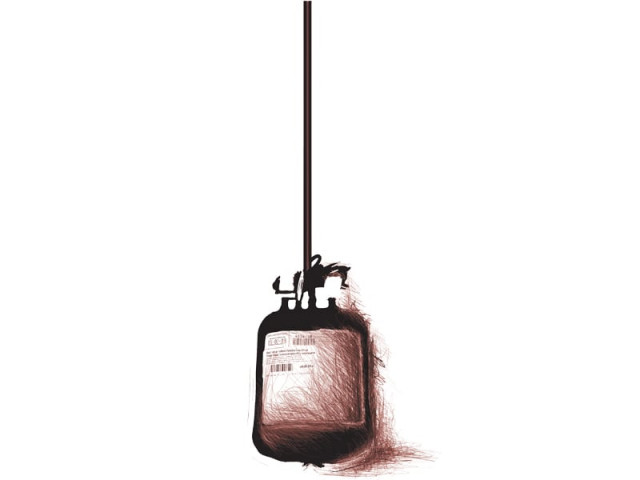When life is on the line: Replacement blood donation restricts quantity required by blood banks
Around 1.6 million units of blood are collected per annum from about 1 per cent of the population.

By a rough estimate, 1.6 million units of blood are collected per annum from about 1 per cent of the population. This blood is collected through the combined efforts of 450 hospital-based blood banks in the public sector, and over 2400 private blood banks. For a population exceeding 180 million, this level of blood collection is woefully inadequate.
The BTS in the country are reliant on three critical stakeholders: The community, the centers that process blood and provide BTS and the patients who rely on this service. As BTS largely depends on the amount of blood provided by the community, it is imperative to promote voluntary non-remunerated blood donation (VNRBD) in Pakistan.
The most important reason behind few blood donations is the huge trust deficit that exists between the community and the blood banks. It stems largely from bad experiences of the donors. In order to build this trust it is imperative for blood transfusion services to be transparent and non-discriminatory.
A sustainable VNRBD based on the ‘do no harm’ principle, should ensure that the donor has a good and valuable first experience, satisfactory enough for them to eventually become regular volunteers.Schools have also not been able to inculcate a spirit of volunteerism amongst students, neither is VNRBD included in their curriculum.
The Pakistan Red Crescent Society (PRCS)’s Blood Donor Center (BDC) has been developed as a model blood bank based on the principle of VNRBD.
It has pioneered the School Based Blood Safety Initiative - an awareness program to prepare a future generation of voluntary non-remunerated blood donors. Over 200 schools from the urban and rural areas of Islamabad participated in the program. About 160,000 students (between the ages 14-16) years have been sensitized to the importance of VNRBD.
PRCS’s national head quarters have already received 98 per cet of it’s blood through VNRBD. During the last 18 months, approximately 150 teachers have also been educated in VNRBD, blood safety, and the role of community participation in supporting BTS.
Published in The Express Tribune, June 14th, 2011.



















COMMENTS
Comments are moderated and generally will be posted if they are on-topic and not abusive.
For more information, please see our Comments FAQ